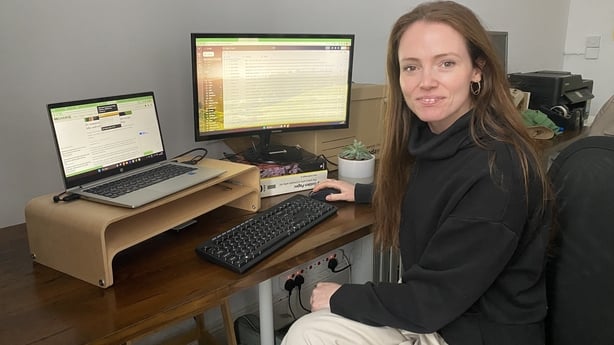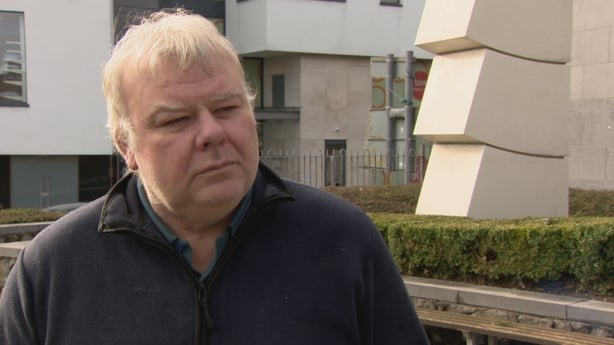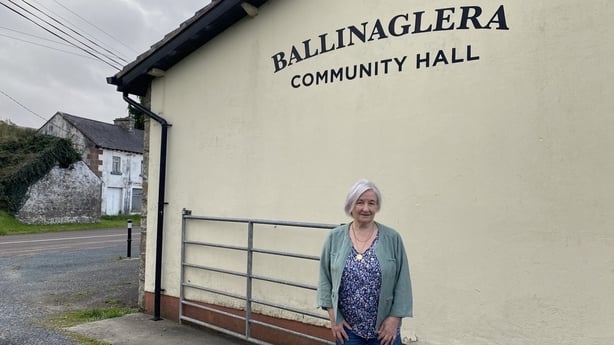The environmental NGO Friends of the Earth has called on the Government to set a date this side of 2030 for phasing out oil and gas boilers from all Irish homes.
Fossil fuel boilers are no longer permitted in new-build homes, but older Irish homes can replace oil or gas boilers with new ones.
The group has said the end date for new boilers should be this decade.
"We do need to look at an end date for oil and gas boilers that this side of 2030," Friends of the Earth's energy policy officer Clare O'Connor said.

Speaking on RTÉ's News At One, she said Ireland was at the bottom of the European class when it comes to using renewable energy in homes.
"We have a renewable energy rate of just 6% so we are the very last," she said. "We are really laggards at the moment."
Ms O’Connor criticised the Government for funding retrofit schemes which permit the installation of new oil or gas boilers.
"If someone is to install and oil or gas boiler today, they last 15 years plus. Houses are effectively being locked into burning fossil fuels for more than the next decade really."
The Sustainable Energy Authority of Ireland says residences account for over a quarter of the country’s carbon emissions, with about 60% of this coming from home heating.
We need your consent to load this rte-player contentWe use rte-player to manage extra content that can set cookies on your device and collect data about your activity. Please review their details and accept them to load the content.Manage Preferences
Ireland is committed to using 70% renewable energy by 2030 and net zero emissions by 2050.
This is to limit global warming to 1.5C above pre-industrial levels.
Currently, 86% of new builds-homes have heat pumps. Thousands of homes are being brought up to standard through the Deep Retrofit Scheme and Warmer Homes Scheme.
However, Independent Roscommon-Galway TD Michael Fitzmaurice says older stone houses cannot be retrofitted to a standard needed to ditch the oil boiler.
"With the stone, the insulation isn’t suiting it," he said. "It gets wet inside the stone. People are entitled to warmer homes but cannot do the work that it required."
Dormer style homes with upstairs bedrooms, Mr Fitzmaurice says, are also proving difficult to retrofit with many contractors "walking away from them".
Mr Fitzmaurice believes the Government target to retrofit 500,000 Irish homes by 2030 is unrealistic.
"It's like me saying I’m going to win the 100-metres in the Olympics, it’s not going to happen," he said.
Figures provided to RTÉ by the SEAI show 34,000 home energy upgrades have been completed so far this year. It said the target for 2023 was 37,180.
Of these, 12,000 homes were brought up to a BER B2 energy rating standard and 2,737 heat pumps were installed.
In a statement, the SEAI said annual targets for last year had been exceeded with over 27,000 energy upgrades, including 4,438 for low-income households.

It estimated emissions savings so far for 2023 at 72kt CO2.
Good Energies Alliance Ireland says rural Ireland faces many barriers in moving off fossil fuels.
Co-founder Aedin McLoughlin says oil tanks and gas boilers must go, but she does not see it happening by 2030.
"I think 2040 is certainly far more realistic, maybe a little bit before then."
The offices of the Letirim-based alliance are in the Ballinaglera community hall, which began life in 1910 as a creamery.
Ms McLoughlin says they have tried to ditch their oil heating but cannot, due to the size and age of the building.
"We had to stick with our oil boiler. We’ve upgraded it to a condensing boiler which is very efficient. But that last step I’m afraid is out of reach."
GEAI has surveyed carbon emissions in Leitrim and found 20% comes from houses.
"Homes need to come to a B2 on the BER energy rating scale before they can move to renewable heating. That’s just too difficult for most."
The community hall has some solar panels on the roof, Ms McLoughlin said the push for homeowners to generate electricity is doomed by the inadequate electricity grid.
"In rural Ireland and especially in the northwest the grid is not fit for purpose," she said, "there are very few plans being made to enable communities to generate electricity".
Last month, the UK shelved its 2025 deadline for phasing out oil and gas boilers, pushing it out by a decade.
Michael Fitzmaurice described the UK decision as realistic. "We are not ready to go there yet," he said, adding that for many homes, oil or solid fuel was still the most reasonable option.
Further energy credits are expected to be announced in next week's budget and there may be some announcements around retrofitting.

Friends of the Earth said the assessment for home retrofits should be free of charge.
"An assessment is money wasted if you are not heat-pump ready," Clare O'Connor said.
She also she called for the Government to lead the way by not subsidising the installation of new oil or gas boilers in Irish homes.
"We are still seeing the gas grid get bigger and bigger every day, when we need to be ultimately getting off gas long term."
The SEAI said its surveyors determine which upgrades can be installed and funded in eligible homes and this depended on "age, size, type, and condition of the property".
It added that oil or gas boilers were recommended in homes where "the existing heating system is obsolete, and the home is receiving attic and wall insulation."







